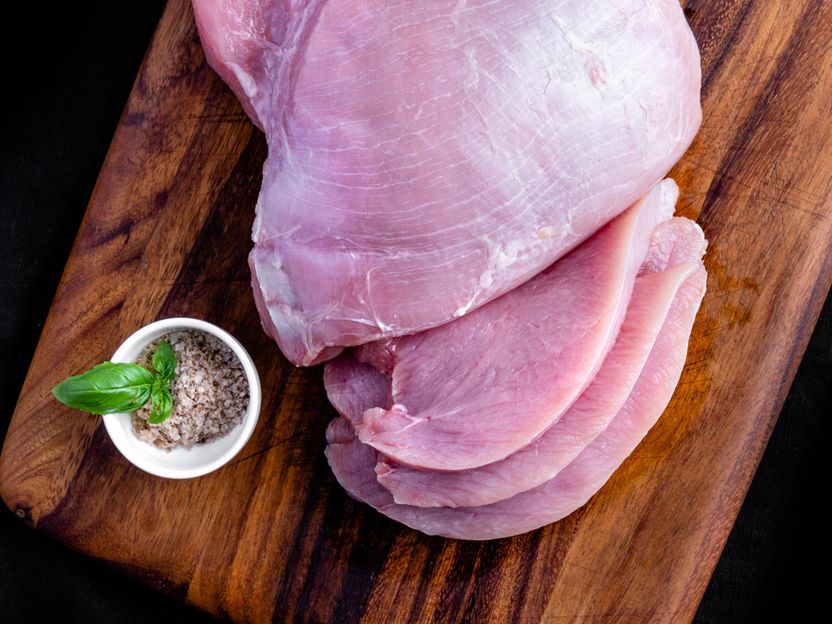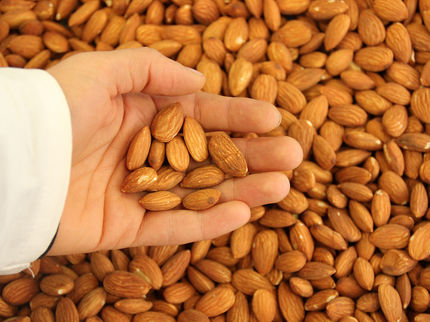More salmonella infections in Europe
Hygiene rules help to prepare poultry safely
In recent months, over three hundred cases of salmonellosis have occurred in various European countries and Canada, which are linked and in the United Kingdom have been partly traced back to frozen breaded poultry meat. They were caused by infections with the bacterium Salmonella Enteritidis, which causes gastrointestinal inflammation. Salmonella is not killed by deep freezing and can remain infectious for a very long time at sub-zero temperatures. The Robert Koch Institute (RKI) and the BfR are monitoring the situation together with the Federal Office of Consumer Protection and food safety (BVL). In Germany, the number of detected cases has currently risen to more than 20 in six federal states. In 2020, there were a total of about 10,000 reported cases of salmonellosis in Germany, most of which were caused by the consumption of contaminated food. In principle, foodborne infections can be avoided by paying particular attention to hygienic care when preparing raw poultry. Due to the measures taken to contain the COVID 19 pandemic, people are currently cooking more often at home and, as a result, convenience products such as frozen goods are also being used more frequently. In some cases, it is not immediately obvious whether such products contain pre-cooked or raw meat. Sufficient heating should always be ensured during preparation, especially of products containing raw poultry meat. In addition, bacterial contamination of other foods via the raw meat and breading is possible. "Especially for children and elderly people there is a higher risk of getting sick from salmonella," says BfR President Prof. Dr. Dr. Andreas Hensel.

Photo by Eiliv-Sonas Aceron on Unsplash
Investigations by the official food monitoring authorities show that raw poultry meat and poultry meat products - including the frozen products - can be contaminated with pathogens. In 2018, Salmonella was found in 5.6% of the chicken meat samples tested and Campylobacter bacteria in every second sample. For this reason, the BfR refers to its recommendations on the handling and preparation of poultry meat and poultry meat products.
It is true that germs such as Salmonella and Campylobacter are killed during the preparation of poultry meat, if the correspondingly high temperatures are reached during cooking. But transferring these germs to hands, household utensils and kitchen surfaces can contaminate other foods with these pathogens. If these contaminated foods are not reheated before consumption, one can become ill. Since salmonella can multiply in food at temperatures above 7 °C, there is a particular risk when eating food that is kept unrefrigerated for a long time, such as salads and desserts.
Therefore, the following general hygiene rules should be strictly observed when preparing raw poultry meat:
- Store and prepare raw poultry products and other foods separately, especially if the latter are not reheated.
- Store fresh poultry meat at a maximum of +4 °C and process and consume until the use-by date
- Defrost frozen poultry meat without packaging in the refrigerator (cover and place in a bowl to collect the defrost water).
- Carefully dispose of packaging materials and defrosting water immediately
- Do not wash poultry meat, as the splashing water can spread germs; it is better to process it directly or dab it with a paper towel and dispose of it directly.
- Clean utensils and surfaces that have come into contact with raw poultry products or defrost water thoroughly with warm water and washing-up liquid before further use.
- Clean hands thoroughly with warm water and soap between each preparation step.
- Cook poultry meat sufficiently until at least +70 °C is reached in the core of the product for 2 minutes and the meat has taken on a continuous whitish colour. This should also be observed when grilling.
Note: This article has been translated using a computer system without human intervention. LUMITOS offers these automatic translations to present a wider range of current news. Since this article has been translated with automatic translation, it is possible that it contains errors in vocabulary, syntax or grammar. The original article in German can be found here.
Other news from the department business & finance
Most read news
More news from our other portals
See the theme worlds for related content
Topic world Food safety
Food safety is at the heart of the food and beverage industry. It ensures that the food we eat every day is not only nutritious, but also free of harmful contaminants. From field to plate, the industry monitors and regulates every step of the process with strict quality controls, advanced testing methods and continuous research.

Topic world Food safety
Food safety is at the heart of the food and beverage industry. It ensures that the food we eat every day is not only nutritious, but also free of harmful contaminants. From field to plate, the industry monitors and regulates every step of the process with strict quality controls, advanced testing methods and continuous research.






























































